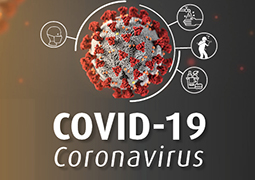
Parliament, Thursday, 11 June 2020 – The Portfolio Committee on Cooperative Governance and Traditional Affairs (Cogta) is the custodian of the National Disaster Management Act and is constitutionally responsible for monitoring compliance with regulations emanating from its implementation. This is what the Chairperson of the committee, Ms Faith Muthambi, told the Mayor of the Buffalo City Metropolitan Municipality, Mr Xolo Pakati, and his delegation yesterday in a virtual meeting.
Ms Muthambi said the metros, especially those that are Covid-19 hotspots, have appeared before the committee to brief it on their Covid-19 response plans, among other things. She said the Eastern Cape has the second highest Covid-19 infection, after the Western Cape.
The proximity between the two provinces and the interaction between the people who live in both provinces are among the reasons behind the escalation of the virus in those provinces. “The rate of interprovincial travel between the two provinces by people from the Western to Eastern for funerals and from the Eastern to the Western for economic reasons is unavoidable and the key reason for that interaction,” said Ms Muthambi.
Presenting the Buffalo City Metropolitan Municipality’s Covid-19 response plan to the committee, Mr Pakati also attributed the rising infection rate in the region to the interaction between people of both provinces.
“The people who die in the Western Cape are buried here in the Eastern and another source of the problem is the East London Correctional Centre,” said Mr Pakati.
Explaining the geographic and population profile of the metro, Mr Pakati highlighted the 154 overcrowded and poverty-stricken informal settlements and villages the metro administers. Buffalo City Metro has suspended its credit policy to ensure that those who are unable to pay for municipal services are not denied services on grounds of non-payment.
The metro has also provided food vouchers to 4 000 households and their distribution strategy is ward-based. The metro also provides water and sanitises public spaces, including taxi ranks. Grave digging services and quarantine sites is another responsibility that falls within the metro’s ambit.
Members of the committee expressed their disappointment with Mr Pakati’s presentation, saying they expected a clear Covid-19 plan with budget approved by the council. Furthermore, the committee complained about the lack of an indication of the quarantine sites, details on the provision of water and other basic services to needy communities. They also complained about the lack of regular Covid-19 testing, which they said was an indication of the small number of clinics and hospitals in the metro.
The committee highlighted a wide range of socio-economic problems facing the metro; some 50% of the population live below poverty line. This socio-economic landscape calls for the metro’s leadership to “rise to the occasion” and ensure that there is a responsive Covid-19 plan in place.
The committee heard that the metro council has not held one successful virtual meeting to adopt the municipality’s 2020/21 budget and Integrated Development Plans (IDPs). Mr Pakati assured the committee that the budget and the IDPs will be considered by the full virtual council meeting planned for Friday, 12 May 2020.
ISSUED BY THE PARLIAMENTARY COMMUNICATION SERVICES ON BEHALF OF THE CHAIRPERSON OF THE PORTFOLIO COMMITTEE ON COGTA, MS FAITH MUTHAMBI.
For media enquiries or interviews with the Chairperson, please contact the committee’s Media Officer:
Name: Sureshinee Govender
Parliamentary Communication Services
Tel: 021 403 2239
Cell: 081 704 1109
E-mail: sugovender@parliament.gov.za

